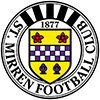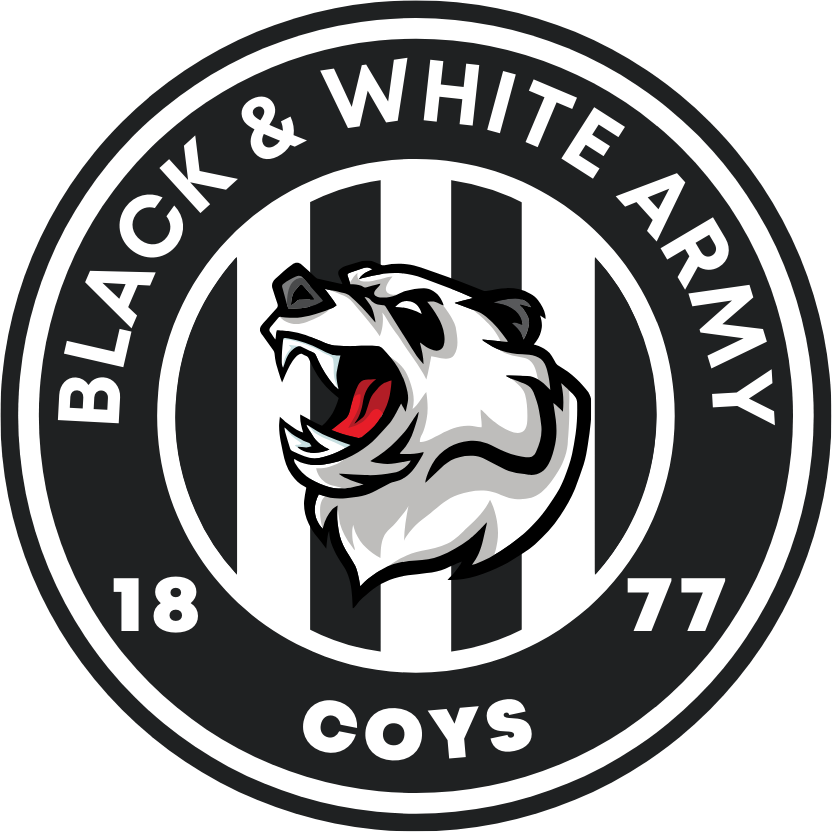-
Posts
52 -
Joined
-
Last visited
-
Days Won
1
Profile Information
-
Gender
Male
The Silent Majority's Achievements

Youth team sub (3/14)
-

Club Sale. Developments "very Soon"
The Silent Majority replied to div's topic in 10000Hours Archive
Whoever takes over, lets hope his first job is to bring in a manager who knows what he's doing! -
There has been no salary for any of the directors posts either past or present.
-

Recent 10000Hrs Cic Email Re Meeting & Key Points
The Silent Majority replied to ktf's topic in 10000Hours Archive
Only temporarily. Wages take up over 70% of the turnover as you have mentioned. Upon relegation the net current liabilities would fall as well as the turnover. Unless of course any of the staff have recently been unnecessarily and prematurely tied up for the next couple of years on a lucrative contract..... -

Recent 10000Hrs Cic Email Re Meeting & Key Points
The Silent Majority replied to ktf's topic in 10000Hours Archive
VAT is collected quarterly as far as I'm aware. Therefore, unless the VAT collection day in 2009 coincided with the exact day of the Report & Accounts then the club must have owed VAT. Its a snapshot in time. The wages the previous season were higher because of bonuses received (eg reaching the League Cup Final). The actual wages paid and therefore the social security owed at the snapshot in time at the Report & Accounts won't necessarily correlate with the total wages over an entire season. Also, we don't know hoe the wages of the previous management were treated in the accounts, when it was paid or when the social security on it were due. As I keep saying, any business will always have outstanding bills to be paid at the date of a Report & Accounts. Our net current liabilities were only about 10% of turnover. That doesn't seem to be a problem to me. -

Recent 10000Hrs Cic Email Re Meeting & Key Points
The Silent Majority replied to ktf's topic in 10000Hours Archive
But you are always going to owe money to social security & VAT at any snapshot in time from a Report & Accounts - even if you have £10 million cash in the bank. You are always going to have trade creditors. If you get in cash from a transfer fee and put it in the bank then sure, it'll reduce the net debt on paper....... but we'll still owe exactly the same amounts of money to trade creditors and social security & VAT! I think the real issue here is that whether we should have some cash in the bank for a "rainy day" -

Recent 10000Hrs Cic Email Re Meeting & Key Points
The Silent Majority replied to ktf's topic in 10000Hours Archive
The outstanding bills this month will all have been paid in 12 months time and replaced with outstanding bills then! It really doesn't matter at what snapshot you look at the books, you will always have a large wad of bills which you have been invoiced for but not yet paid! Any transfer income would automatically reduce the debt. You'd have cash in the bank and outstanding bills to paid which would netted off against each other to reduce net current liabilities. You can use that cash in the bank to pay those bills as they become due and use current income to increase the wage budget or you can use the that cash to increase the wage budget..... it really doesn't make any difference and it won't read any differently in the Report & Accounts..... and you'll eat up that windfall just the same and still have the same current liabilities in a year's time! You can stick £10 million cash in the bank and you'll still have the unpaid bills at any snapshot in time! -

Recent 10000Hrs Cic Email Re Meeting & Key Points
The Silent Majority replied to ktf's topic in 10000Hours Archive
But, as discussed before, most of that debt is due within 1 year to current creditors and will therefore be paid anyway as when due from income at that time. That "debt" is about 10% of turnover, ie we're buying goods and servives, getting invoiced for them then paying them, for example, the following month. To pay off that £300k would in effect be taking £300k working capital out the club and isn't necessary. Its normal business practice. Every business operates like this. -
But not all the funds would go to the CIC surely as 48% of the shares would not be owned by the CIC? So, if the CIc decided to sell the ground then 48% of the proceeds would be due to the other shareholders who could do whatthey wanted with the money?
-
I totally agree. As I mentioned earlier, I own some of the 48% shares so any deal that is done renders my shares worthless. However, they would have been worthless had all the work not been done. As far as I am concerned they are quite right to try and get something back from it all. However, I'm not sure Gordon Scott would agree and I'm not endorsing the CIC! I'm on the fence!
-
I think BTB answered this. The holding company was in respect of a loan to the club which payed off Bill Barr - this is well documented in all Reports & Accounts along with details of the interest rates, etc. From my reading of the Report & Accounts, the asset that was sold - St. Mirren Park - was owned by St. Mirren FC Ltd and was sold by St. Mirren FC Ltd with all the proceeds coming only to St. Mirren FC Ltd. If any deal was done through a holding company then it would have had to be shown in the Report & Accounts. There is no mention of a deal being done with a holding company. In addition, the Clydesdale Bank had their debt secured on St. Mirren Park. I doubt very much it would have been possible to sneak the ownership of St. Mirren Park over to a holding company without the shareholders, accountants, auditors and bankers noticing! Tesco paid St. Mirren FC Ltd and St. Mirren FC Ltd then used the money to repay debtors, including the holding company that had lent the club money to pay off Bill Barr. That is my reading of the Report & Accounts. I get a copy of the Report & Accounts every year - as do many other folk on this forum - and the deal was as I have stated above. Its all in black & white and available to the public. If a deal had been done through a holding company owned by the directors then the interest of the directors in that holding comapny would have had to been declared in the Accounts. I can't see anything along those lines. If you can quote something from the Report & Accounts of St. Mirren FC Ltd or the holding company you mention which proves what you are saying then please feel free.
-
I can’t see how anyone can personally have benefitted from the deal so far. Tesco agreed to build an SPL compliant stadium for St. Mirren plus pay a sum of money to the club, St. Mirren FC Ltd. That sum of money hasn’t gone to any shareholders, its all been used to pay off debts (including loans made to the club by directors) and for work at the training complex. Everything has been reported in the Report & Accounts which have been audited. The only way the selling consortium can make any money from the Tesco deal, as far as I can see, is if they can sell their shares for a profit. And even then, as I mentioned in an earlier post, any profit would need to take into account the interest they will have paid on any borrowings they had to make to buy the shares in the first place plus all the hours of unpaid work they undertook whilst working on the deal. Again, I am taking no sides here. I own some of the 48% of shares that will effectively become worthless should the CIC offer (or indeed other offer) go through. I actually therefore have a vested interest in the selling consortium failing to sell their shares to anyone. In effect they will make a profit at my expense. However, I recognise that they are the ones that put their own money at risk and did the work to make it happen. If they hadn’t done so then my shares would have been worthless anyway! Therefore I’m not too miffed if the selling consortium sell their shares. I’d imagine that someone like Gordon Scott wouldn’t be too happy though! With regards the CIC concept itself I’m staying out of the debate as you just end up getting abuse thrown at you unless you support the CIC in its entirety. I’m quite happy for the likes of yourself to lead the questioning! You’re doing a valiant job of it!
-
I’m probably being thick here (not unusual!), so what you are interested in is whether they have got their money back for the loans? I think BTB’s post answers that (as far as I know). Its all accounted for in the Report & Accounts.
-
Yes, I don't disagree. However, to be fair, you need to take into account inflation since 1998/99, the interest paid on the money borrowed to buy the shares, the risk taken and, not least, all the personal time they gave to sell the ground to Tesco, all done for free. I suspect that if you applied a decent hourly rate to all the time they gave to the project in addition to the cost of buying the shares (including interest payments and inflation) that the return they are looking for isn’t really that great. As I said in my reply to Somner9, I’m not taking any sides here. Just trying to be objective and fair with regards to the selling consortium.

